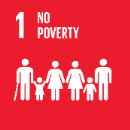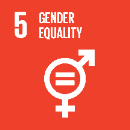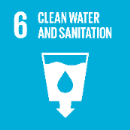 |
Sustained investment in health and malaria unlocks the potential of human capital to generate growth. At household level, reducing malaria protects household income from lost earnings and the costs of seeking care. Unfortunately, the costs associated with malaria will keep communities and countries in poverty and additional strategies are needed to tackle the problem. |
 |
Well-nourished people, especially children, are better able to fight malaria. People who suffer less from malaria can work their fields more consistently resulting in improved food security. As long as extreme poverty persists, the fight against malaria will fall second to putting food on the table. |
 |
The scale-up of malaria interventions averted at least 670 million bouts of malaria illness and 4.3 million malaria deaths between 2001 and 2013. Preventing malaria in pregnancy reduces maternal mortality and gives newborns a far healthier start in life. |
 |
Reducing malaria enables children to attend school regularly and learn more effectively. This significantly improves their school performance, and later wage-earning capacity. Educating communities, especially young children about malaria encourages them to protect themselves and educate others to do so too, therefore lessening the hold the disease has on a community. |
 |
Freeing women and school-age girls from the burden of caring for family members when they fall sick from malaria, increases their likelihood of completing school, entering and remaining in the workforce. |
 |
Cleaning trash from waterways such as streams and surrounding areas, and better sanitation leads to decreased mosquito breeding habitats and therefore less breeding opportunities and thus a reduction in the rate of malaria transmission. It also improves water quality, generating further health benefits. |
 |
In resource-constrained malaria endemic areas, access to sustainable energy will improve access to electrical lighting and cooling, enabling people to spend more time indoors where vector control can be better employed. |
 |
Reducing malaria creates healthier, more productive workforces which can help to attract trade and commerce. When combined with pro-poor policies, these factors drive job creation, inclusive growth and shared prosperity. Enterprises that invest in their workers reduce the cost of doing business, increase their competiveness and enhance their reputation. |
 |
By ensuring that major construction and development projects do not introduce or increase malaria transmission, the benefits of progress can be reaped, while also protecting human health and ecosystems. Well-planned infrastructure and improved housing help reduce exposure to mosquitoes and facilitates greater access to health and malaria services. Innovative vector control methods and awareness creation. |
 |
A targeted response to malaria actively improves health of the poorest, enabling vulnerable families to break the vicious cycle of disease and poverty, and helping to make sure that no one is left behind. Investing in malaria reduction contributes to the creation of more cohesive, inclusive societies. |
 |
Changing climate conditions and the movement of people may reintroduce the disease in areas that have been malaria-free or introduce it to new areas. Given that climate change is predicted to increase the range and intensity of malaria transmission, plans to mitigate the effects of climate change are likely to include an increased commitment to aim to eliminate malaria. |
 |
The many multi-sectorial partnerships in place to reduce and eliminate malaria have a positive collateral effect, and also bring progress to other domains of development and thus contributes towards the well-being of people and their quality of life. |
![]()
Get Social With Us
Download the UP Mobile App